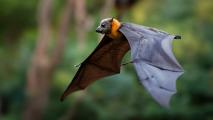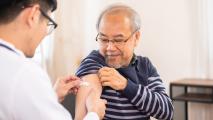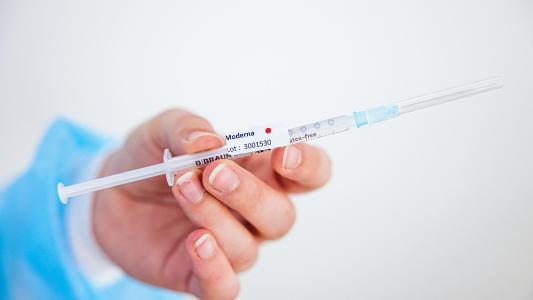Researchers at the University of Oxford have announced a two-phase human challenge trial studying our immune response to SARS-CoV-2 and protection from COVID reinfection.
The first phase of the study, set to begin this month, will try to determine the lowest dose of virus that is able to reinfect roughly 50% of previously recovered volunteers, while producing no, or minimal, symptoms.
The second phase will challenge all of the subjects with that dose of virus to better understand what kind of immune response protects against COVID reinfection.
“There are still many unknowns surrounding this virus and human infections studies can enable us to learn a lot about COVID-19,” Shobana Balasingam, vaccines senior research advisor at study funder the Wellcome Trust, said in a release.
“This study has the potential to transform our understanding by providing high-quality data on how our immune system responds to a second infection with this virus.”
How big a problem is COVID reinfection?: Currently, COVID reinfection seems rare. According to Dutch news wire BNO News, which tracks COVID reinfection reports daily, there have been 71 confirmed cases thus far and 2 deaths.
This is surely an undercount, since it only counts cases where both infections have been genetically sequenced and shown to come from distinct viruses. However, BNO tallies 34,407 suspected cases and 38 suspected COVID reinfection deaths.
Even if all those suspected cases were confirmed, it would still represent a tiny sliver of the hundreds of millions of people who have been infected and recovered.
These numbers are far from bulletproof, especially in places like the U.S., where infrastructure for reporting reinfections is lacking. As Johns Hopkins epidemiologist Caitlin Rivers told STAT, without that data “we don’t know, and I want to know.”
In Denmark, where all health records are centrally tracked, a study published in The Lancet found that infection during the country’s first wave provided about 80% protection against reinfection up to 7 months later, although that fell to 47% among seniors.
The Oxford team hopes to tease out what kind of immune response is necessary to prevent COVID reinfection, and what happens to people who are exposed again. These discoveries could be crucial to understanding herd immunity and how often vaccination is necessary.
A human challenge: Oxford will be conducting what is known as a human challenge trial.
In a challenge trial, volunteers are purposefully exposed to pathogens. By ensuring exposure in a controlled setting, researchers do not need to wait for people to become infected out in the real world to draw conclusions about vaccines, immunity, or infectiousness — greatly speeding up the process.
Although challenge trials always use young and healthy volunteers, there is always a risk that the virus could also make someone very ill, or perhaps even die.
The Oxford trial will use the original strain of the virus from Wuhan. To make sure the subjects are as safe as possible, they will be quarantined in a special hospital suite, regularly monitored, and have access to rescue treatments, including Regneron’s monoclonal antibody treatment, if they show signs of illness.
There are still details to be announced, however.
“Researchers have not yet released the full protocol of the study, so there is much that we still do not know, such as specific provisions for long-term care,” the activist group 1Day Sooner, which advocates for human challenge trials, wrote in their newsletter.
“1Day Sooner will campaign for the protocol to be released before the first volunteer is inoculated.”
Finding the threshold: In the first phase of the study, Oxford hopes to recruit up to 64 previously infected volunteers ranging from 18 to 30. Those participants will be split into two groups.
The first group will be re-exposed to SARS-CoV-2 (“challenged”) to determine the optimal infectious dose of the virus. The idea is to figure out exactly how much virus is needed to cause a COVID reinfection in roughly half of people previously infected, without causing more than moderate symptoms.
Once this has been determined, the second group will then be challenged with that optimal dose.
“Challenge studies tell us things that other studies cannot because, unlike natural infection, they are tightly controlled,” Helen McShane, professor of vaccinology and the study’s chief investigator, said in the release.
“When we re-infect these participants, we will know exactly how their immune system has reacted to the first COVID infection, exactly when the second infection occurs, and exactly how much virus they got.”
This could provide not only a basic understanding of our immune response and the threat of COVID reinfection, but perhaps design tests to more accurately predict who is adequately protected.
“We will then be able to understand what kind of immune responses protect against re-infection,” McShane said.
The Oxford team will also continue to measure subjects’ immune response at various intervals during and after infection to better understand what immune response SARS-CoV-2 sparks.
A continuing fight: In addition to determining the immune response needed to protect people from COVID reinfection, the investigators believe the challenge trial could provide valuable data for fighting the virus, as well.
A more thorough understanding of the necessary immune response may help guide the development of vaccines and treatments, the investigators said, as well as bolster our confidence in who is truly protected from SARS-CoV-2 and for how long.
“The findings could have important implications for how we handle COVID-19 in the future, and inform not just vaccine development but also research into the range of effective treatments that are also urgently needed,” Balasingam said.
We’d love to hear from you! If you have a comment about this article or if you have a tip for a future Freethink story, please email us at tips@freethink.com.






